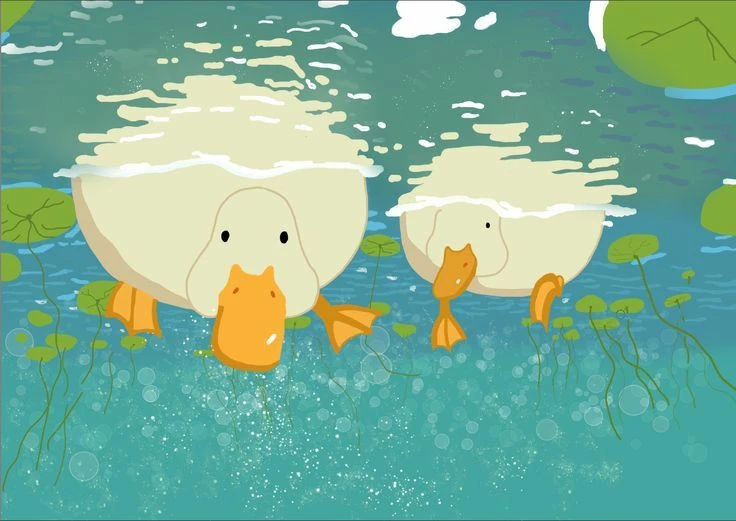Because OP left zero context;
14 Bighead Carp from East Asia that were intentionally planted in 1992, but never properly removed were fished out of a pond.
https://www.kktv.com/2024/05/13/massive-invasive-carp-found-colorado-pond/
Thanks for that. Even more detail:
The bighead carp were introduced in 1992 as a part of a national study done to examine if the species could be effective in reducing nuisance algal plaguing ponds. The fish were to be removed at the conclusion of the study in 1995, however bighead carp persisted in the waters.
Sounds like they forgot they were there. So those fish were 32+ years old? I wonder if they were causing any problems. Apparently weren’t breeding - they didn’t say why (either sterilized or only one gender, I’d guess).
Yeah was wondering why they didn’t reproduce. And how they found them all, were they tagged somehow?
Chum the waters and Carp will show up, it’s a very odd form of fishing.
If they were smart, they would only have selected one sex for the study. That or water temperatures/seasons just happen to not be compatible with their eggs.
deleted by creator
All carp are bastards.
“small pond”
A small pond the size of a large pond
Anything smaller is a drainage ditch.
California has completely dry ditches they call rivers
Americans will use anything but the Metric system 😆
At least it was a pond without any connection to other bodies of water. There is a Tom Scott video about a canal in the US that is charged with an electric field that zaps any fish coming through in an attempt to block a certain invasive fish species.
Here is an alternative Piped link(s):
https://www.piped.video/watch?v=t3oLeSPINOk
Piped is a privacy-respecting open-source alternative frontend to YouTube.
I’m open-source; check me out at GitHub.
The area of the water at Jack B Tomlinson Park in Arvada, CO is 2.8 acres, about 11,300 M2. There’s no universal definition of “pond”, some saying smaller than 10 acres (that’s the Minnesota Land of 10,000 Lakes definition) , while Wikipedia says less than 12.
The sad thing is that carp doesn’t even taste good.
It’s protein that can be feed to other things than humans - any fowl, if you want the end result to be food for you - or pets. Some enterprising soul could start a company that buys carp from recreational fishers and funnels them to a cat food company. For instance.
They do look deceptively tasty, though, don’t they? It’s interesting how most invasive species seem to be not good eating for humans.
»perceived« as not good eating for humans – Asian carp was brought in as a food source but Americans assume it tastes the same as common carp – all parts of kudzu are not only edible, but tasty and nutritious as well, but it’s looked down on as a weed that only poor people would touch – snails in California are descendants of gourmet European snails but we’re scared of anything that doesn’t come out of a fast food bag
invasivores have been rediscovering old recipes and creating new recipes for a lot of invasive species – their biggest battle is perception, not taste
Good to know. I guess I can understand why people wouldn’t like escargo, but it seems not liking a fish surely it more based on actual flavor preferences. I mean, there are some fishes I do not like (I’ll eat them, but I wouldn’t buy them). I don’t think I’ve ever had carp of any sort, nor have any preconceptions about it. I try not to think everyone thinks like I do, but the things I am reluctant to eat are all based on either personal experience, or just cultural weirded-out (head cheese, rocky mountain oysters; but not escargo, oddly?). I figure most people are like that - won’t eat something because of some cultural bias (sounds disgusting), but not because they heard it tastes gross.
US has gotten really bad on what we perceive as edible – European cuisine still has a LOT of dishes based on organ meats that we’ve almost completely lost (liver paté, steak and kidney pie, blood sausage, tripe, lengua, guanciale, oxtail, pickled trotters) – everything’s been reduced down to what’s available in the supermarket, shrink-wrapped into a styrofoam tray – we can handle portioned steaks but not a butcher taking a bandsaw to a carcass, we can handle chicken breasts but not a whole chicken – things like “thigh”, “leg”, “rib” refer to the shape, not to the location on the animal it came from
EDIT: for the curious, The Whole Beast by Fergus Henderson
liver paté
Good riddance to that, for how it’s produced alone. Yes, I know you can get other than Goose pâté, but it’s considered lower quality and inferior. The best pâté is fatty pâté, and there’s only one way to make it and it’s beyond cruel. Factory farming looks positively humane in comparison.
I think your point largely stands, with some regional exceptions. I mean, I live in the Midwest and most of the local grocery stores carry pig’s feet, so people around here are doing something with then. But then, this area was settled largely by Germans, so you’re going to find more of that than French pâtés or British steak & kidney pies.
It’s interesting how most invasive species seem to be not good eating for humans.
Fully agreed! However, invasive lionfish buck this trend in tasty, tasty fashion. I daresay it’s the best tasting fish, bar none. I liken it to albacore sashimi with Kerrygold butter put together, but even better.
common carp doesn’t taste great – in this case, it was bighead carp which is considered quite nice – the main family of invasives in the US is Asian carp (includes bighead carp) which is also considered fairly tasty
It’s the same with wild boars.
California wild boar prosciutto is fantastic – they live off acorns very similarly to Spain’s black boars raised for jamón ibérico de bellota
I haven’t been by in a few years, but you used to be able to get wild boar bacon in santa cruz too. Fuckin delicious.
In my experience it’s all about how you cook it. There are other methods than just grilling or frying.
It’s delicious when blended with some milk and ice cream.
bighead carp – “head of the bighead carp is particularly prized in Singapore”, “bighead carp is enjoyed in many parts of the world”, “flesh of the bighead carp is white and firm, and not similar to that of the common carp”
You can convince humans to hunt anything into extinction if you can convince them that it’s delicious enough.











